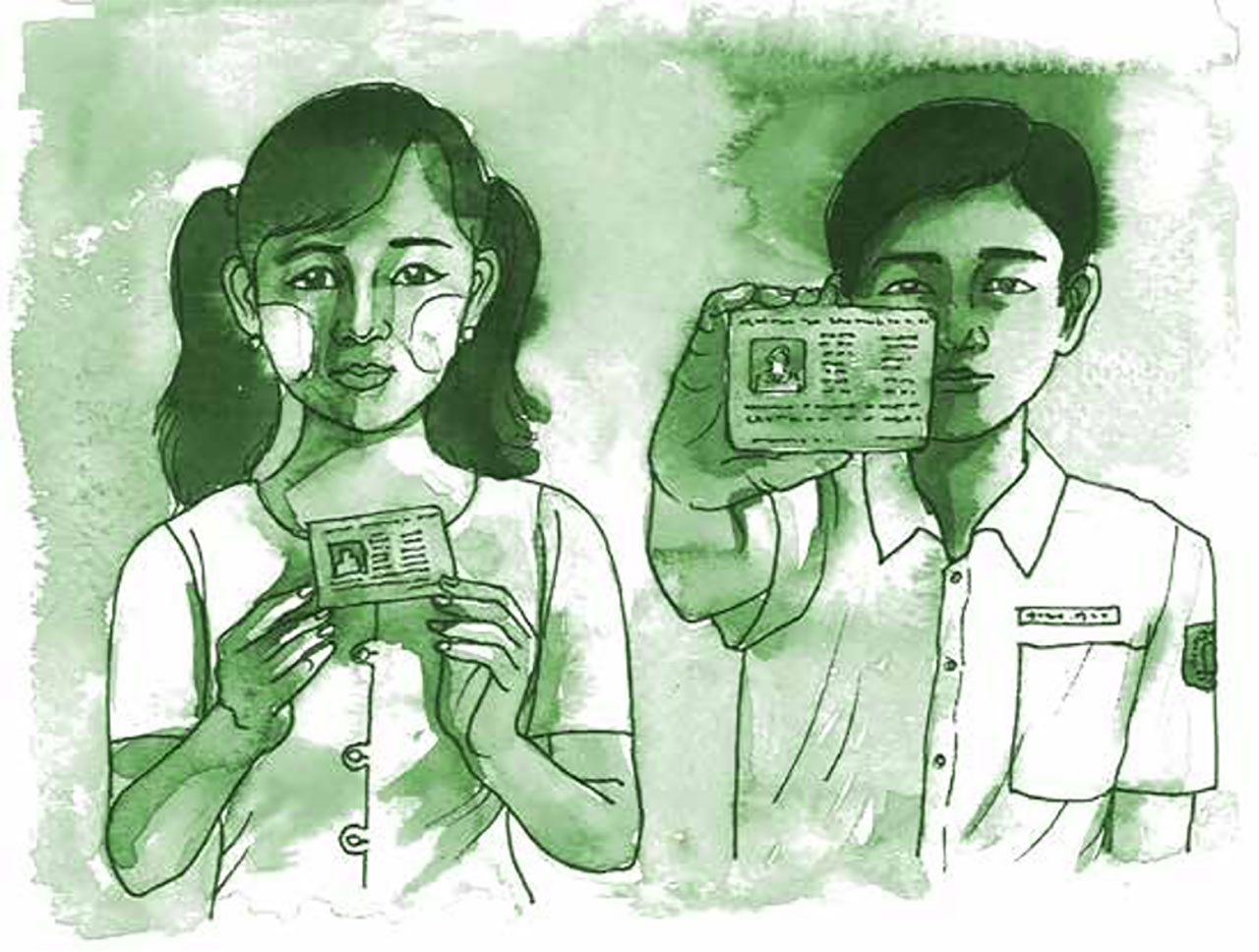PREVIEW
What specific challenges might stateless persons face?
Because de jure stateless persons do not have legal citizenship status, it is very likely that they cannot access many of their rights, including:
- electing or becoming local or national government representatives;
- applying for government jobs;
- registering their lands and other property with the authorities;
- signing legal contracts;
- fully accessing government health services;
- enrolling children in government schools;
- having freedom of movement.
This can cause many problems for individuals, families and whole communities.
De facto stateless persons may also face restrictions in accessing their rights, similar to de jure stateless persons. De facto stateless persons may also face barriers when applying for citizenship or documents that prove their legal citizenship status.
FOCUS ON MYANMAR:
Accessing Documents That Prove Legal Citizenship Status
In 2017, SMILE Education and Development Foundation (SEDF) and Justice Base conducted research in Mawlamyine and Pathein to identify barriers for people to access documents that prove their legal citizenship status. They met with 179 persons of different ethnic and religious identities, members of both majority and minority groups. Their findings, published in the report Access to Documentation and Risk of Statelessness (SEDF & JB 2017), included the following key barriers for ethnic and religious minority groups:
- Lack of awareness of how to access documents that prove legal citizenship status: Many respondents did not know what they needed to apply for documents that prove their legal citizenship status.
- Inconsistent and unpredictable procedures: Respondents expressed confusion about the application process and some participants also believed that there were decisions made by government officials which were not communicated openly to applicants.
- Fear of downgrading one’s legal citizenship status: Respondents expressed fear of renewing their citizenship card, in case they would receive a card with a lower legal citizenship status in return. They were worried that this would restrict their access to rights.
- Bribery: Many respondents were asked to pay a bribe to unofficial brokers who offered to facilitate the application process.
- Obstacles for self-identification: Sometimes immigration officials decided applicants’ religious or ethnic identity. Muslims were often not allowed to identify as ethnic Bamar. Some respondents decided to identify with another religious or ethnic identity than their own, which they felt was safer to identify with. Some respondents self-identified with an ethnicity that immigration officials did not accept.
- Discrimination: Sometimes Christians, ethnic Tamils and persons of multiple ethnic heritages were treated unfairly by immigration officials.
- Significant delays: Some respondents had to wait a very long time -- even over ten years -- to receive their citizenship cards. Others had to visit the immigration office an unreasonable number of times. One respondent had been asked to visit the immigration office 20 times in three months.
In response to these findings, SEDF and Justice Base suggested many recommendations, including:
- There needs to be more awareness-raising activities about the Burma Citizenship Law of 1982 among ethnic and religious minority groups.
- The procedures for the application for documents to prove one’s legal citizenship status need to be clear, consistent and easily available to the public.
- Ethnic and religious identity should be removed from any citizenship cards.
အမျိုးသားရေးဝါဒီ
လှုပ်ရှားသွားလာနိုင်မှု
အမွေအနှစ်
ကိုလိုနီဝါဒ
